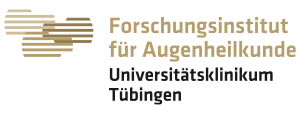Home » Labs » Wissinger Lab » Projects » Usher Syndrome Society
2022 Usher Syndrome Society Translational Research Grant

Rescuing the common deep intronic USH2A variant c.7595-2144A>G by single gRNA Enhanced-Deletion Cas9 genome editing
Principle Investigator: Susanne Kohl, Co-Investigator: Pietro De Angeli
Usher syndrome is an autosomal recessively inherited rare ciliopathy characterized by sensorineural hearing loss and subsequent retinal degeneration (i.e. Retinitis pigmentosa, RP). Among the three clinical Usher subclasses, mutations in the USH2A gene are responsible for ~50% of all Usher and 85% of Usher type 2 cases, respectively, and a common cause of isolated RP. Although many mutations in USH2A are private and therefore ultra rare, important founder mutations have been identified. The deep-intronic variant (DIV) USH2A:c.7595-2144A>G is common and can account for up to ~ 4% of total USH2A alleles, depending on population. This DIV determines the activation of a cryptic splice site, leading to intron (pseudoexon) retention in the mature mRNA tran-script. The pseudoexon insertion in the mRNA results in a premature stop codon, lead-ing to the degradation of the mutant transcript via the nonsense mediated decay pathway and thus no protein translation. We want to rescue this missplicing phenotype by CRISPR/Cas9-mediated genome editing. We have bioengineered a novel Enhanced-Deletion Cas9 (EDSpCas9), and have shown in prior in vitro proof-of-principle experiments the feasibility and functional superiority of this EDSpCas9 to destruct mutant DIV alleles using single gRNAs. In this proposal, we will apply and evaluate this strategy for the selective destruction and rescue of the DIV USH2A:c.7595-2144A>G. This includes assessment of gRNAs efficacy and specificity, and effect on USH2A mRNA splicing and protein expression. As a phenotypic read out, a ciliogenesis assay in patient-derived fibroblasts and thereof differentiated photoreceptor precursor cells will be studied.

